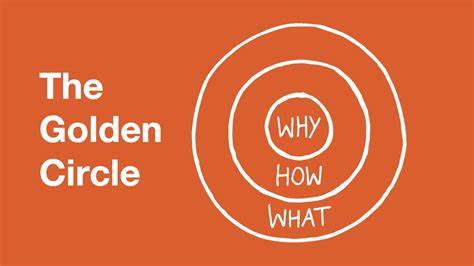On June 14, 1965, Martin Luther King Jr gave the commencement address at Oberlin College entitled “Remaining Awake Through a Great Revolution”- he said, “there are all too many people who, in some great period of social change, fail to achieve the new mental outlooks that the new situation demands. There is nothing more tragic than to sleep through a revolution….We are challenged to achieve a world perspective. Anyone who feels that we can live in isolation today, anyone who feels that we can live without being concerned about other individuals and other nations is sleeping through a revolution… What we are facing today is the fact that through our scientific and technological genius we’ve made of this world a neighbourhood”.
This is not just true of people and countries, but also brands and organisations. At a time when organisations are truly global and not limited to a single space or ideology, people do not expect them to merely sell products and services, but also expect them to live the purpose and values they represent. In an age of interconnectedness, words are no longer enough. Consumers are looking for brands to have a conscience and a consciousness. They cannot remain comfortably agnostic, and are expected to take a stand on moral, social and political issues, however controversial they may be. This is now a great dilemma for marketers, who so far assumed that simply communicating good CSR would help build consumer trust in their brand.
Communicating a stand taken for social injustice can be a double-edged sword and remains in an uncertain, uncomfortable zone for organisations. With greater amount of information in the ecosystem, consumers can clearly see if brands are living up to their promises. This hyper information age is coupled with an age of distrust – the public does not trust the major institutions that serve them, an unfortunate reality of most interactions and information pieces that consumers process, ranging from politics, government, news and media or even marketers.
With depleted trust in a government that appears unresponsive, consumers expect companies to do more to improve the social conditions around them in addition to the economic. As Richard Edelman, CEO or the firm bearing his name, said that the thought process of consumers is one where they believe that brands are something that they can control. “My choice of brands can make a statement about me”, so the selection of a brand/product/service by a consumer now becomes not only an action they take to improve a broken world, but to tell the world of their values and beliefs. Investing their energy to support or attack a brand on the basis of values and positions, is a new form of activism, enabled and often turbocharged by social media.
Social media is a potent tool to drive meaningful positive change in awareness and attitudes. However, this very potency of social media, combined with well-meaning activism of consumers, can also turn an indignation into a spark that lights a flash crisis engulfing a brand within hours. With these amazing tools, and evolving consumer attitudes, it is a good time for brands to ask themselves if they have given their stakeholders and consumers reasons to think well of them, especially in an event where a brands’ values and intentions are called into question. Showing responsibility and taking a stance on social issues builds a bridge of trust. If a company takes a head in the sand approach to live social issues around them, they risk losing relevance and trust – this is a sure-fire method to come under attack whenever a social issue crops up directly affecting the organisation.
A good model to approach decision making around supporting social issues is Simon Sinek’s Golden Circle, which he writes about in his book ‘Start with Why’. He explains that ‘why’ is perhaps the most important message that an individual or an organisation can communicate to inspire others to action. “Why’ is the way we can explain our passion and the purpose of our existence – according to Sinek, successfully communicating the passion behind the ‘why’ or ‘brand purpose’ is the way to communicate to a listener’s limbic brain, the part of the brain anatomy that processes feelings of trust and loyalty, and importantly, decision making. It is critical to start from within, rather than looking outward for external trends and sweeping research studies on attitudes etc. The worst thing possible is to jump on a trendy social bandwagon for the sake of currying favour with passionate consumers. Organisations must look at publicly embracing purpose – a connection to the higher-order reason for being, adding greater resonance and meaning to their communication.
Moving outward from the circle, organisations needs to work with the values that represent the DNA of an organisation – beliefs, commitments and principles. It is important to avoid the temptation of excessive image curation and have the courage to show up in an authentic manner. Values are the internal moral compass of an organisation that can guide how it shows up, to its employees internally and to those in the external world.
While it is critical for organisations to stake a stand and stay relevant in a highly polarised and distrustful world, it is important to be prepared for a crisis in case one does erupt. Organisations must be aware of their legacy issues and any vulnerabilities that may crop up creating painful contradictions between what is being said and what has really been done. There must be complete alignment and commitment within the organisation, starting at the top – leadership team, board members and investors. It is imperative that people across all levels understand and commit to the purpose, values and position/action that needs to be taken.
To elevate your brand, your company and contribute meaningfully to social justice, navigate the new realities, take control of them through authenticity and shape your relationship to the world. Stay ‘woke’ and start with the ‘Why’.
The views and opinions published here belong to the author and do not necessarily reflect the views and opinions of the publisher.



Be the first to comment on "Brands in the age of Social Justice – Start with the Why"